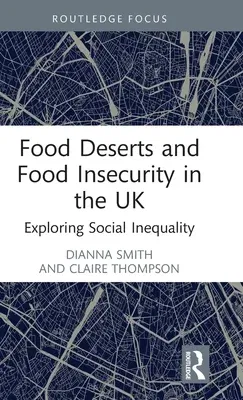This book examines the social inequalities relating to food insecurity
in the UK, as well as drawing parallels with the US.
Access to food in the UK, and especially access to healthy food, is a
constant source of worry for many in this wealthy country. Crises, such
as the COVID-19 pandemic, have coincided with a steep rise in the cost
of living, meaning household food insecurity has become a reality for
many more households. This book introduces a new framework to examine
the many influences on local-level food inequalities, whether they
result from individual circumstances or where a person lives. The
framework will allow researchers new to the field to consider the many
influences on food security, and to support emerging research around
different sub-topics of food access and food security. Providing a
thorough background to two key concepts, food deserts and food
insecurity, the book documents the transition from area-based framing of
food resources, to approaches which focus on household food poverty and
the rise of food banks. The book invites researchers to acknowledge and
explore the ever changing range of place-based factors that shape
experiences of food insecurity: from transport and employment to rural
isolation and local politics. By proposing a new framework for food
insecurity research and by drawing on real-world examples, this book
will support academic and applied researchers as they work to understand
and mitigate the impacts of food insecurity in local communities.
This book will be of great interest to students and scholars of food and
nutrition security, public health, and sociology. It will also appeal to
food policy professionals and policymakers who are working to address
social inequalities and improve access to healthy and nutritious food
for all.

